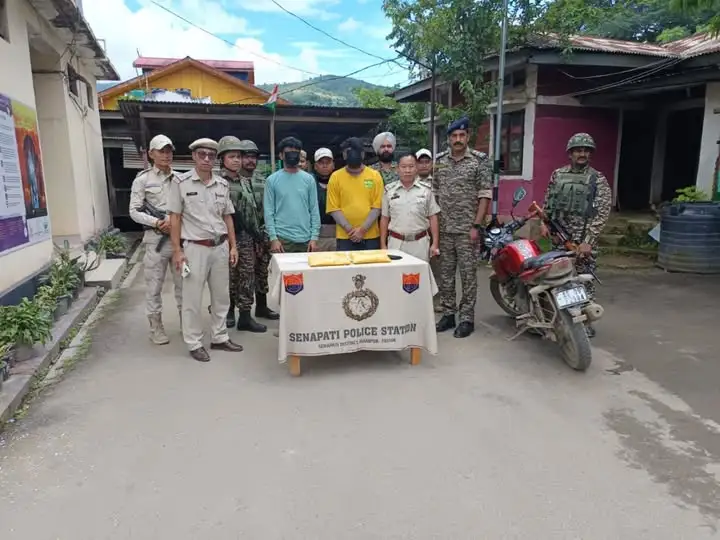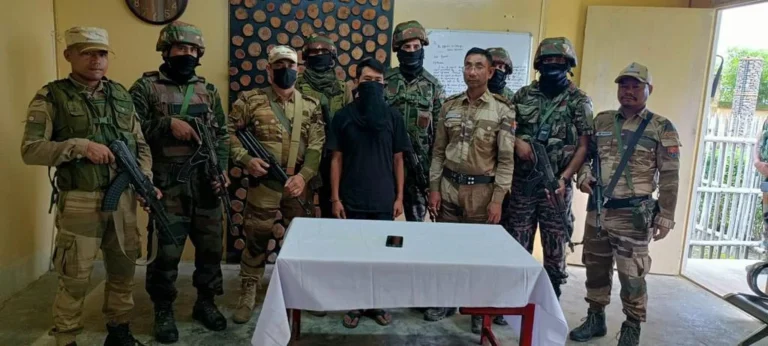Indian Army Collaborates with Manipuri Women to Weave a New, Resilient Future
Summary of the News Article
In a transformative initiative aimed at reviving Manipur’s traditional handloom industry, the Indian Army has partnered with local women artisans and the Aseem Foundation to create a sustainable and empowering project. This collaboration, under the Army’s “Operation Sadbhavana,” seeks to empower women and restore the region’s cultural heritage, promoting peace and economic growth in the conflict-affected state.
Introduction: Weaving a New Future Together
Manipur, a state nestled in the northeastern corner of India, is renowned for its rich cultural tapestry and traditional handloom industry. The art of weaving, predominantly carried out by women, has been a cornerstone of the state’s heritage. However, in recent years, this age-old tradition has faced challenges due to various socio-economic factors. Recognizing the need to revitalize this vital industry, the Indian Army, in collaboration with local women artisans and the Aseem Foundation, has embarked on a project aimed at weaving a new, resilient future for Manipur.
The Heart of Manipur’s Handloom Industry
At the core of Manipur’s handloom industry are the women artisans who skillfully craft fabrics like Phanek, Moirangphi, and Wangkhei. These textiles are not merely products; they are expressions of the state’s vibrant history, culture, and daily life. The intricate designs and patterns tell stories of the land and its people, making each piece unique.
Challenges Facing the Handloom Industry
Despite its rich heritage, the handloom industry in Manipur has encountered several hurdles:
- Competition from Synthetic Alternatives: The influx of machine-made synthetic yarns has overshadowed traditional handwoven textiles, leading to a decline in demand for authentic handloom products.
- Impact of Ethnic Conflicts: Ongoing ethnic tensions have disrupted local communities, affecting the livelihoods of artisans and the stability of the handloom sector.
- Economic Constraints: Many artisans lack access to modern tools, quality raw materials, and markets, hindering their ability to produce and sell their products effectively.
The Collaborative Initiative: Operation Sadbhavana
In response to these challenges, the Indian Army, under its “Operation Sadbhavana,” has initiated a collaborative project with local women artisans and the Aseem Foundation. This initiative aims to empower women, revitalize the handloom industry, and promote peace and economic growth in Manipur.
Key Components of the Project
- Establishment of the Tronglaobi Yarn Bank: This facility serves as a central hub providing raw materials, machinery, and infrastructure to women artisans. It ensures a steady supply of quality yarns and tools, enabling artisans to produce superior products.
- Skill Development Programs: The project offers training sessions to enhance the weaving skills of local women, introducing them to modern techniques while preserving traditional methods. This dual approach ensures the production of high-quality, marketable products.
- Economic Support and Stipends: Participants receive stipends, providing financial stability and incentivizing active involvement in the project. This support helps artisans focus on their craft without the burden of economic uncertainty.
- Market Access and Promotion: Through the Aseem Foundation, the project facilitates a national platform for artisans to showcase and sell their products, ensuring fair trade practices and better income opportunities.
The Role of the Aseem Foundation
The Aseem Foundation, a Pune-based organization with a strong track record in rural development, plays a pivotal role in this collaboration. Beyond providing expert guidance, the foundation ensures the project’s sustainability by facilitating market access and promoting the products nationally.
Empowering Women and Revitalizing Culture
This initiative is more than just an economic endeavor; it is a movement to empower women and restore Manipur’s cultural heritage. By involving women at every stage—from production to marketing—the project fosters a sense of ownership and pride among artisans. It also contributes to the broader goal of peace and unity in Manipur, as economic empowerment is closely linked to social stability.
Impact on the Community
The collaborative project has several positive outcomes:
- Economic Upliftment: Artisans gain financial independence, improving their quality of life and contributing to the local economy.
- Cultural Preservation: Traditional weaving techniques are passed down to younger generations, ensuring the continuity of Manipur’s rich cultural heritage.
- Social Cohesion: The project brings together women from diverse backgrounds, fostering unity and collective progress.
Challenges and Future Prospects
While the initiative has made significant strides, challenges remain:
- Sustaining Market Demand: Ensuring a consistent market for handwoven products is crucial for the project’s long-term success.
- Scaling Up Operations: Expanding the project’s reach to include more artisans and regions requires additional resources and support.
- Adapting to Market Trends: Keeping pace with changing consumer preferences and global market dynamics is essential for competitiveness.
Conclusion
The collaboration between the Indian Army, Manipuri women artisans, and the Aseem Foundation represents a beacon of hope for Manipur’s handloom industry. By weaving together tradition, empowerment, and economic development, this initiative is crafting a resilient future for the state. It stands as a testament to the transformative power of collaboration and the indomitable spirit of the women of Manipur.
FAQs
- What is “Operation Sadbhavana”?“Operation Sadbhavana” is an initiative by the Indian Army aimed at promoting peace and development in conflict-affected regions through various community welfare projects.
- How does the Tronglaobi Yarn Bank support artisans?The Yarn Bank provides raw materials, machinery, and infrastructure, ensuring a steady supply of quality yarns and tools for artisans to produce superior products.
- What role does the Aseem Foundation play in this project?The Aseem Foundation offers expert guidance, facilitates market access, and promotes the products nationally, ensuring the project’s sustainability.



